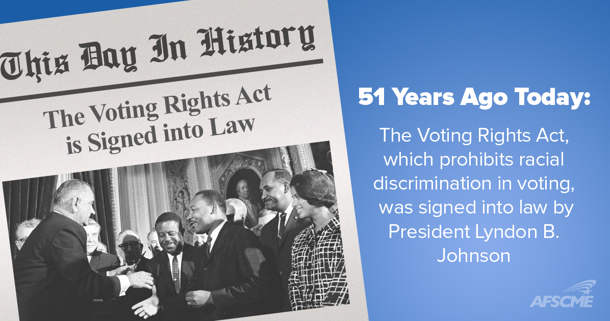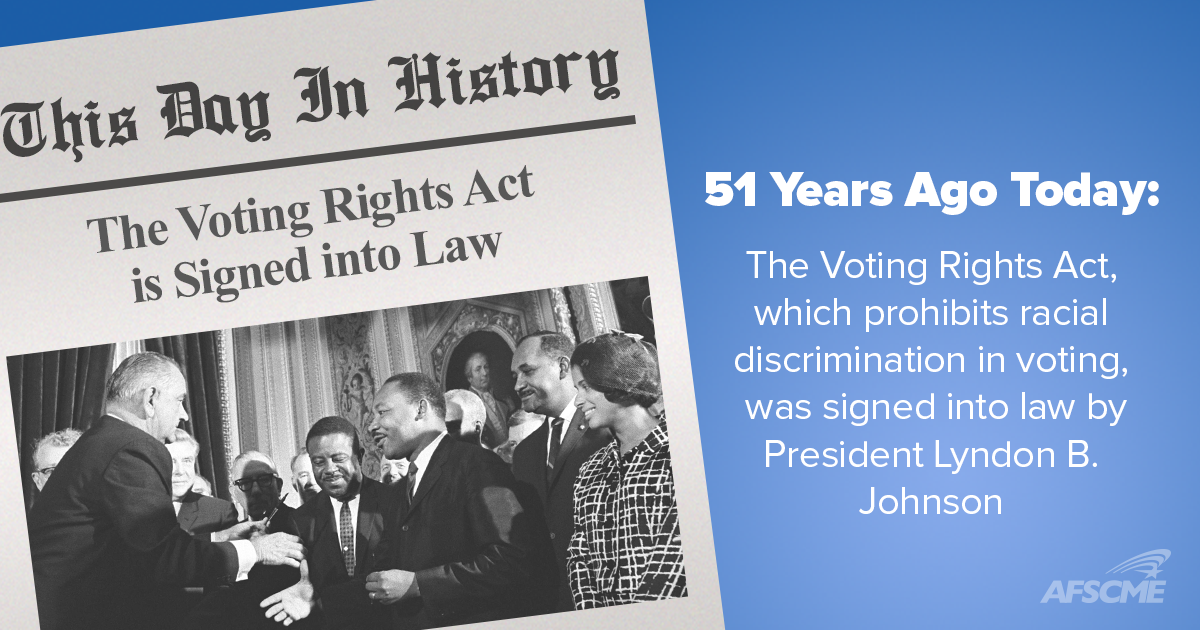
The 51st anniversary of the Voting Rights Act (VRA) is August 6. Signed by Pres. Lyndon B. Johnson, the law sought to make sure African Americans – and all Americans – could exercise their right to vote freely. Unfortunately, exercising one of democracy’s most cherished rights remains a challenge for too many people.
The VRA was meant to end race-based barriers to the voting booth, such as poll taxes and literacy tests that Southern states, in particular, used to keep African-Americans from voting. Over time, because of the law, many of those barriers came down. Then, in 2013, the conservative majority on the Supreme Court issued a ruling in Shelby County v. Holder, which held that a key provision of the VRA was unconstitutional.
The ink barely dried on that decision before the drive to suppress votes resumed, mostly in the form of voter identification (ID) laws aimed at keeping African Americans, other people of color and young voters away from the polling booths. North Carolina passed its voter ID law just days after the Shelby ruling.
Proponents of voter ID laws ostensibly claim concern about voter fraud. Yet experts keep looking for instances of rampant voter fraud – and they keep coming up empty. People have a greater chance to be struck by lightning than commit voter fraud, according to the Brennan Center for Justice.
The Department of Justice also found “no apparent cases of in-person voter impersonation” after a review of its databases and other sources. That’s the same conclusion drawn from academic studies and investigative reports by journalists.
That is increasingly the view of the courts as well. Recently, courts have either limited or struck down voting restrictions in several states.
A federal appeals court last month struck down North Carolina’s voter ID law, describing its provisions as a way to deliberately “target African-Americans with almost surgical precision” in an effort to reduce black turnout during elections.
Another federal court found that the Texas voter ID law violated the VRA. A federal judge also found parts of Wisconsin’s voter ID unconstitutional, and North Dakota’s voter ID law was blocked by a federal judge who said it unfairly burdened Native Americans. In Kansas, a judge blocked the state’s two-tier voting system, which required proof of citizenship to vote in local and state elections, but not in federal elections.
These victories underscore the true intent of voter ID laws – to deprive certain groups of citizens of the right to cast a vote. Unfortunately, that still leaves 15 states with new voting restrictions, just in time for the November elections.
Those are 15 reasons why we need to restore the VRA by passing the Voting Rights Advancement Act, pending before Congress.
VRA made a big, bold step in the right direction 51 years ago for the full right of the ballot box. It’s only right to honor that achievement. But we will really honor that achievement when the right to access and exercise the vote is fully protected.
